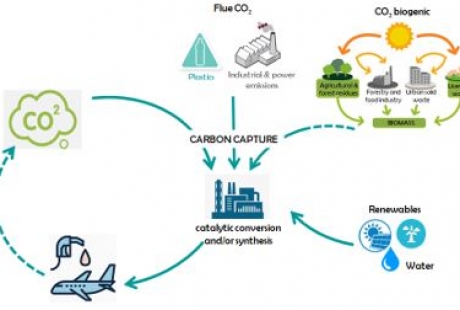The initiative, which has a budget of 2.6 million euros, mainly provided by the European Union’s H2020 programme, brings together nine organisations from Europe, Asia and America that will work together to reduce the pollutant emissions associated with this type of transport.
Aviation is responsible for 13% of global greenhouse gas (GHG) emissions associated with transport, accounting for more than 900 million tonnes of CO2 per year. Forecasts indicate that the number of flights will increase by 42% by 2040, which will bring with it a 21% increase in pollutant emissions linked to this type of travel, which is essential in an increasingly global world.
The Vice-president and Regional Minister of Industry, Competitiveness and Business Development, Arturo Aliaga, highlighted “the undisputed position of the Aragon Hydrogen Foundation, which is demonstrated once again by its participation in this European challenge. This is an ambitious project to make air transport cleaner, more sustainable and more environmentally friendly through hydrogen. We are undoubtedly talking about a strategic sector for the future, both for the economy and for citizens and companies, in which the Aragonese stamp is stamped, because we must not forget that Aragon has been working on hydrogen projects for more than 15 years with a view to energy decarbonisation”.
In addition to being a strategic project for European Union companies, it is a sector dependent on energy-intensive fuels, which is why research is essential to find other cleaner fuels to replace them, in line with the desire expressed by the members of the Air Transport Action Group (ATG, an independent international coalition comprising the main players in the sector) to reduce GHG emissions by at least 50% by 2050, by which time the European Union has also set itself the goal of achieving carbon neutrality.
This is precisely where the 4AirCraft project comes in, which brings together 7 European organisations, including the Aragon Hydrogen Foundation, a Japanese organisation and a Brazilian organisation that will collaborate to develop next-generation alternative aviation fuels. They will do so by means of a disruptive technology that contemplates the development of next generation catalysts and their synergic interaction for the direct conversion of CO2 into liquid aviation fuels that are also sustainable and competitive from an economic point of view. An unprecedented technological revolution based on a circular economy solution with renewable energies at the core.
They are participating in the project together with the Aragon Hydrogen Foundation, which will have a budget of 485. 485,000 and will test the developments in its facilities together with the other partners, the University of Hokkaido (Japan), the University of Helsinki (Finland), the University of Bielefeld (Germany), the University of Turin (Italy), the University of Antwerp (Belgium), the University of Sao Paulo (Brazil), the University of Sao Paulo (Brazil) and the University of Sao Paulo (Brazil), the University of Sao Paulo (Brazil) and the State Agency National Research Council CSIC (INMA, Institute of Nanoscience and Materials of Aragon and ICV, Institute of Ceramics and Glass) and Basque Centre for Materials, Applications and Nanostructuress (BC Materials). The Aragonese Agency for Research and Development Foundation (ARAID) also participates.

